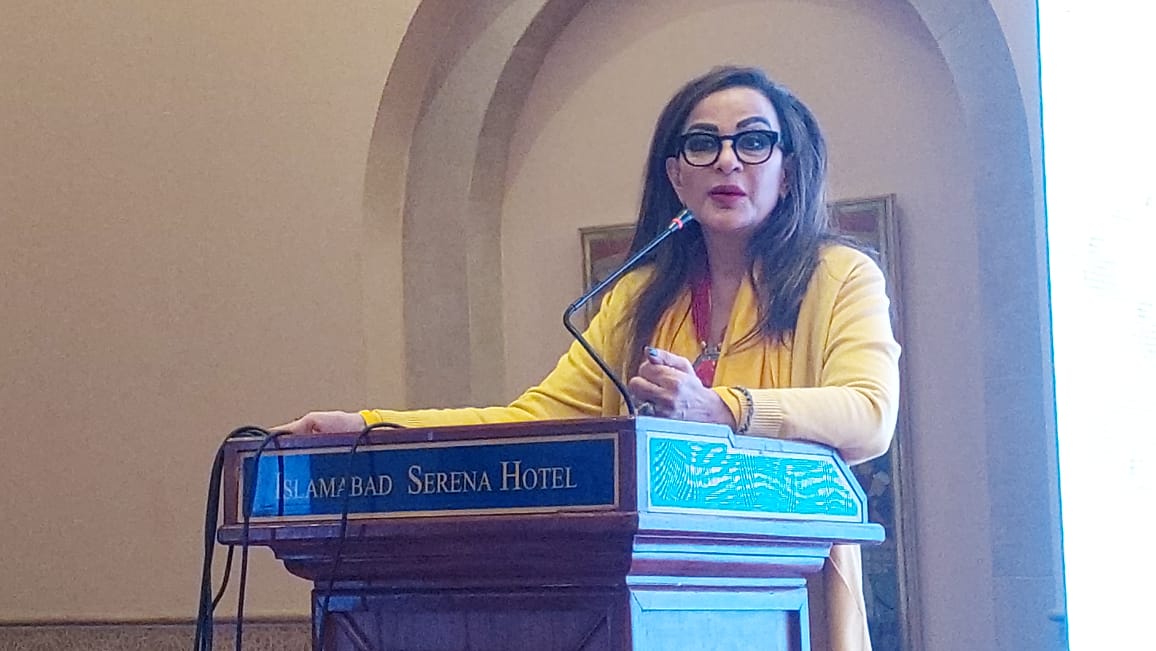
In a significant moment for Pakistan’s energy transition, Senator Sherry Rehman, Chairperson of the Senate Standing Committee on Climate Change, addressed the “Great Solar Rush in Pakistan” event, emphasizing the nation’s growing progress toward solar energy and the need for policy reforms to keep up with public demands.
Senator Rehman began by acknowledging the vital role of public and consumer action in driving the transition to renewable energy. She noted that Pakistan is increasingly relying on imported solar panels, primarily from China, as the country strives to meet its energy needs. In fact, nearly one-third of Pakistan’s energy capacity is being sourced from solar imports to address the challenges of an unreliable energy supply and high electricity rates.
However, she raised concerns about the current energy system, specifically the aging grid and the burden it places on consumers. Despite the increasing adoption of solar energy, many consumers still find themselves paying high costs for electricity and are unable to afford the initial investment required for solar options. Senator Rehman pointed out that while there are two main types of solar operations underway in Pakistan—1) Net Metering, which is enabling policy but faces unintended consequences, and 2) small consumers going off-grid, leading to an excess electricity supply—there is still a gap between public demand and policy implementation.
Senator Rehman highlighted the importance of continuing to invest in renewable energy rather than relying on fossil fuels, stressing that Pakistan should embrace its position as a market leader in South Asia’s solar sector. She emphasized that the country’s solar market growth is crucial for sustainable energy development and must be enabled by sound policy.
One of the key issues raised was the burden being placed on middle and low-income consumers by the Power Ministry, which is shifting the costs of solarization to these groups. Senator Rehman pointed out that many of these consumers are still paying for old energy capacity costs, which places an additional financial strain on them. She also referred to the example of Pakistan’s Parliament House, which has been selling electricity to the grid for some time, contributing to Pakistan’s growing solar energy capacity.
Senator Rehman discussed how the public has moved faster than government policy on renewable energy, with the people’s actions now outpacing the policy measures in place. She stressed that policy needs to catch up with the public’s transition to solar energy, ensuring that equitable and affordable electricity is available nationwide. She stated, “Energy is what creates wealth for a country,” and emphasized the shift from the fossil fuel era to the renewable energy era as essential for Pakistan’s future.
Regarding solar energy, Senator Rehman noted the 200% increase in solar energy in the country, which has led to $2.1 billion in imports. Solar power is now being seen as a reliable daytime alternative to traditional electricity sources. However, she warned that solar energy investments should not be discouraged by policies that fail to adapt to the needs of consumers, especially the rooftop revolution that is taking place across the country.
She also praised the Power Ministry for its decision to retire 2000 megawatts of aging fuel plants, but added that Pakistan is still carrying a national energy surplus, which can be better utilized if solar energy policies are aligned with public needs. Net metering, which allow.